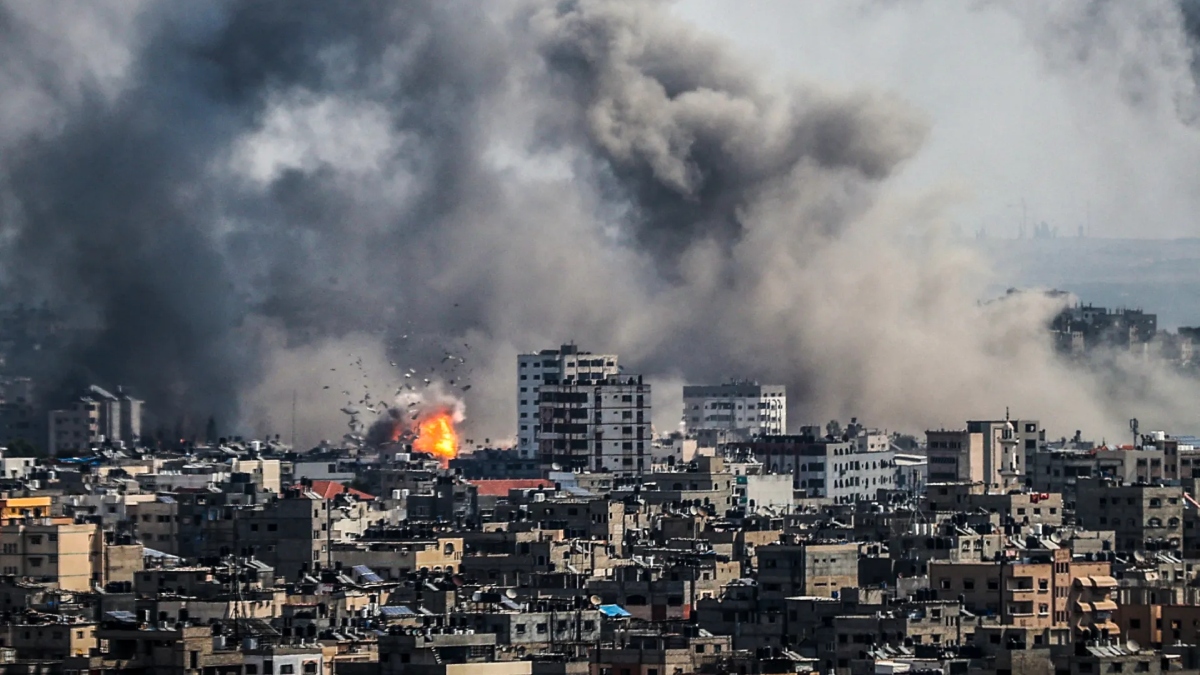In the wake of Israel’s intense bombing campaign on Gaza, the local health ministry has reported a death toll surpassing 5,000. Of this number, over 2,000 are children. The airstrikes began more than two weeks ago in response to a Hamas attack on October 7, which Israeli officials claim resulted in the deaths of over 1,400 individuals. Additionally, Hamas is reported to have taken more than 200 hostages.
With the conflict escalating, Israel’s military disclosed that over 300 new strikes were carried out within a recent 24-hour window. Although these numbers have been presented by Gaza’s health ministry, news agency AFP has not independently verified them.
The humanitarian situation in Gaza is becoming increasingly dire. Over one million people have been displaced, and thousands of buildings are now in ruins. With the territory already under siege, essential supplies such as water and food are becoming scarce.
Efforts are underway to provide aid to the distressed region. A third convoy of trucks, bringing much-needed relief from Egypt, entered Gaza through Rafah, its only crossing not controlled by Israel. This relief effort has been brokered by the United States, which promises a “continued flow” of aid, though UN agencies insist that much more is required.
Prime Minister Benjamin Netanyahu remains resolute, vowing to “erase Hamas” as speculations rise regarding a full-scale ground invasion. In one night alone, more than 60 individuals, as reported by Gaza’s Hamas-controlled media, were killed in Israeli raids.
On the ground, residents recount their experiences, describing the terror they felt and the devastation they witnessed. Israeli forces remain positioned near the Gaza border, making limited incursions to target Hamas and attempt to rescue hostages, which now total 222, according to Israel.
Elsewhere, in the occupied West Bank, tensions are on the rise. Clashes between Palestinians and Israeli security forces or settlers have resulted in 95 Palestinian deaths since the Gaza fighting began.
Gazan residents are grappling with a severe shortage of resources, including safe drinking water. There are increasing concerns about the health infrastructure, especially with Israel’s refusal to allow fuel into Gaza. This could mean that essential services, such as ambulances and hospital equipment, could soon be non-operational.
As the conflict continues, global leaders are expressing concern over a potential full-scale regional conflict. Both Israel and its adversaries, including Iran and its allies like Hezbollah, have issued warnings and threats, further escalating tensions. Israel has also reported airstrikes on targets in Syria and Lebanon.
US officials have emphasized their readiness to act if the situation escalates. Palestinian Prime Minister Muhammad Shtayyeh warned of “new crimes, atrocities, forced displacement, and killing” if Israel invades Gaza.






